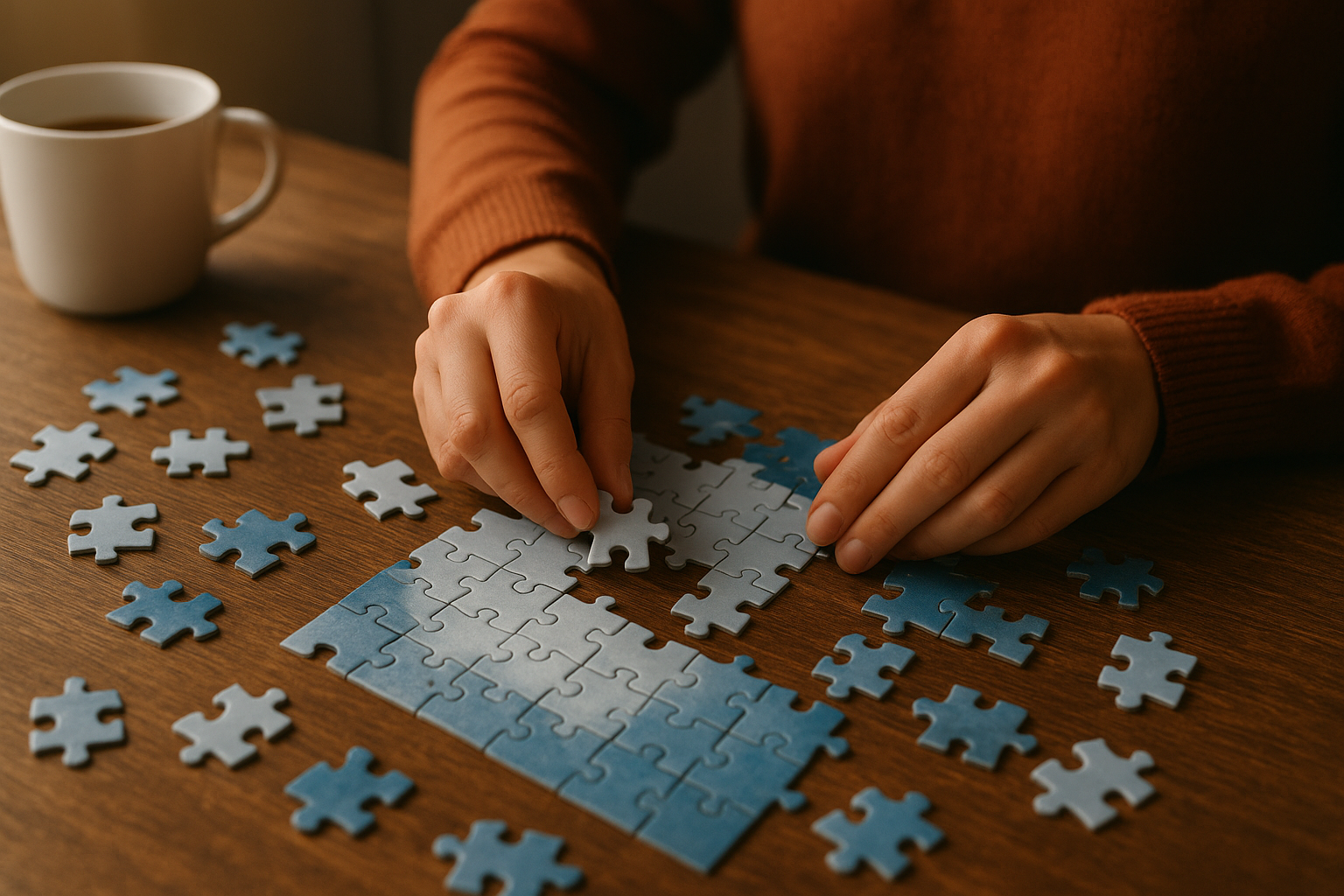Puzzles & Accomplishment

There's a moment every puzzler knows: you've been staring at the same clue or grid for what feels like hours. Then something shifts. A pattern appears. A word unlocks. The answer falls into place, and suddenly the whole puzzle makes sense. It's quiet, but it's electric. Puzzles aren't just distractions or time-fillers. They awaken something deep in us. The thrill of understanding something that once felt impossible. It's not about being the smartest person in the room. It's about the journey: confusion, persistence, and finally, clarity. And that feeling, that small but powerful sense of "I did this".
Why do we do puzzles?
At the heart of puzzling is curiosity. That itch in the mind that won't let go of a question. A good puzzle doesn't demand attention; it earns it. You walk away, make coffee, go about your day, but your brain keeps circling back: What if I try this? What am I missing? It's not just about finding the answer. It's about chasing understanding, turning confusion into clarity. But solving isn't only internal. There's something about wanting that effort to be seen. Not for applause or ego, but for connection. The moment you crack a puzzle, your instinct is to share it with someone who gets what it took. That's why recognition matters. Leaderboards, timestamps, your name beside a solution—they make your achievement real. And in that space, a community forms. People who struggled through the same twists and dead ends. People who respect the accomplishment because they earned theirs too. In a world where answers can be generated in seconds, the act of solving (really solving) and having others know it was you feels more meaningful than ever.
Today's Challenge: AI
We live in a time where almost any puzzle can be solved with a few keystrokes. Sudoku, crosswords, logic grids. AI does them faster and better than we can. And while AI is incredible, it also changes what it means to say "I solved this." If a machine can do it in seconds, did we actually accomplish something? Or did we just ask nicely? That's the problem. If anyone can copy and paste a puzzle into a solver, then solving stops being an accomplishment. It becomes a checkbox. This site exists to bring authenticity back to puzzling.
How Savant Puzzles Works
AI-Proof Puzzles
The puzzles here aren't just about computation or pattern repetition. They require intuition, creativity, and lateral thinking—qualities AI struggles with. These puzzles are designed for humans, not algorithms.
Public Leaderboards & Verified Accomplishment
When you solve a puzzle, it doesn't vanish into the void. Your success is public. Leaderboards, timestamps, progress tracking—everyone can see that you solved it, when you solved it, and in your own way. It's proof of skill, not software.
Your Brain Is the Tool
You can't copy and paste these puzzles into a solver. They ask for your perspective, your weird connections, your trial-and-error. And because of that, when you solve them, the win is undeniably yours.
Accomplishment
We live in an age of shortcuts. AI writes essays, solves math problems, completes sentences before we even type them. Efficiency is everywhere. But accomplishment—the kind that comes from effort, struggle, and patience—is becoming rare. And that’s exactly why it matters.
Puzzles remind us what it feels like to use our minds with intent. To fail, retry, rethink, and finally, win. They remind us that effort still has value. That thinking deeply is not outdated. That some things are worth earning. So this is an invitation. Not to be the fastest or the smartest, but to show up with curiosity and try. Solve a puzzle. Get stuck. Walk away. Come back. Feel the click when it finally comes together. And when it does, your name will be there—for everyone to see—not because you found a shortcut, but because you found a solution.